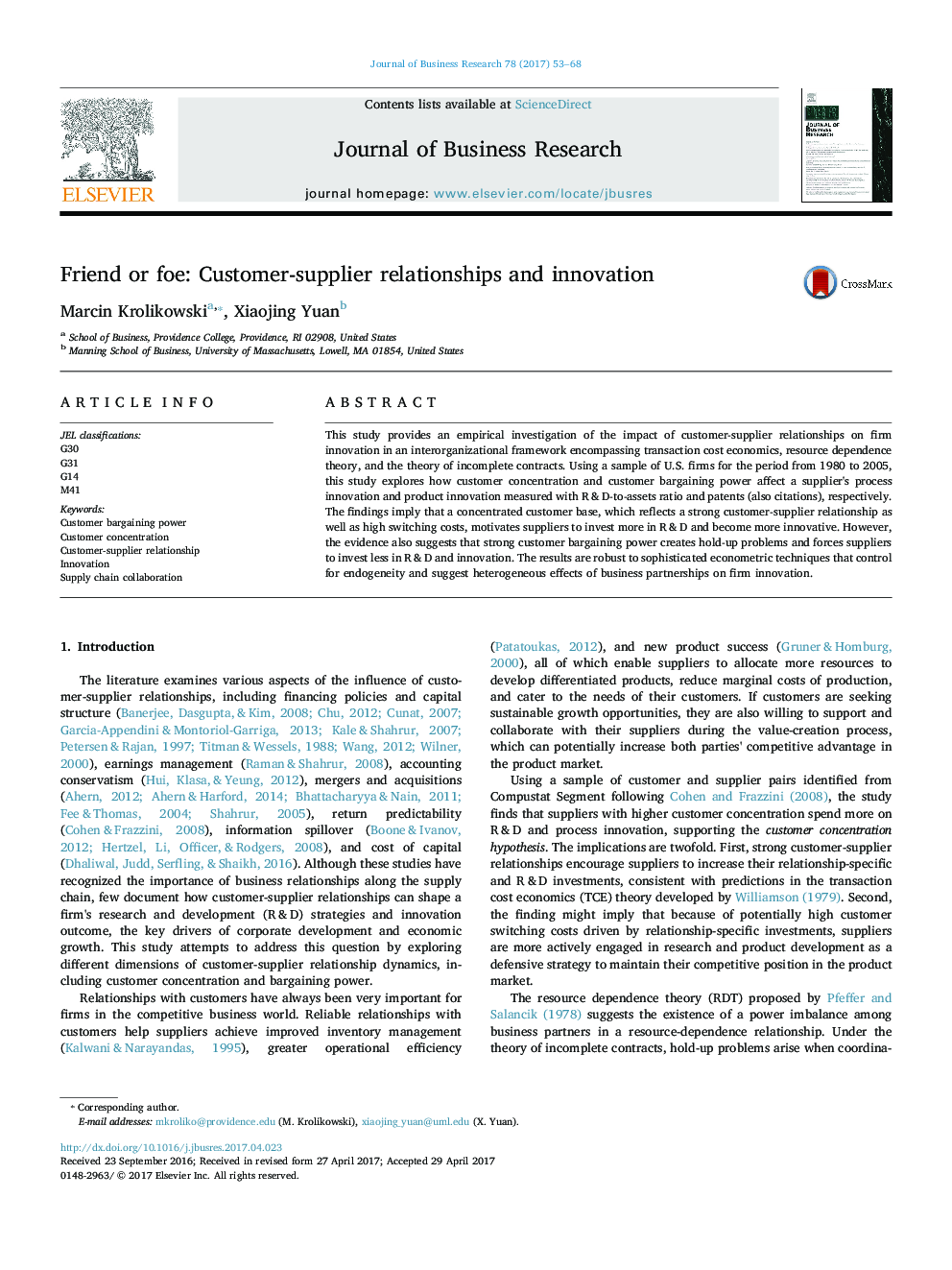| Article ID | Journal | Published Year | Pages | File Type |
|---|---|---|---|---|
| 5109586 | Journal of Business Research | 2017 | 16 Pages |
Abstract
This study provides an empirical investigation of the impact of customer-supplier relationships on firm innovation in an interorganizational framework encompassing transaction cost economics, resource dependence theory, and the theory of incomplete contracts. Using a sample of U.S. firms for the period from 1980 to 2005, this study explores how customer concentration and customer bargaining power affect a supplier's process innovation and product innovation measured with R&D-to-assets ratio and patents (also citations), respectively. The findings imply that a concentrated customer base, which reflects a strong customer-supplier relationship as well as high switching costs, motivates suppliers to invest more in R&D and become more innovative. However, the evidence also suggests that strong customer bargaining power creates hold-up problems and forces suppliers to invest less in R&D and innovation. The results are robust to sophisticated econometric techniques that control for endogeneity and suggest heterogeneous effects of business partnerships on firm innovation.
Related Topics
Social Sciences and Humanities
Business, Management and Accounting
Business and International Management
Authors
Marcin Krolikowski, Xiaojing Yuan,
